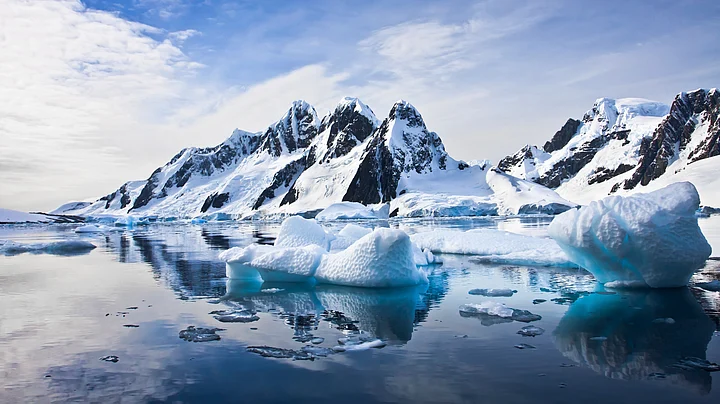Antarctica’s massive ice cap is melting faster than ever, with twice the amount of ice lost in its western portion compared with what it accumulated in the east during the past decade, a new study has found.
The researchers “weighed” Antarctica’s ice sheet using gravitational satellite data and found that from 2003 to 2014, the ice sheet lost 92 billion tonnes of ice per year.
The vast majority of that loss was from West Antarctica, which is the smaller of the continent’s two main regions.
Since 2008, ice loss from West Antarctica’s unstable glaciers doubled from an average annual loss of 121 billion tonnes of ice to twice that by 2014, the researchers found.
The ice sheet on East Antarctica, the continent’s much larger and overall more stable region, thickened during that same time, but only accumulated half the amount of ice lost from the west, they said.
“All we have done is take the balance of the ice on Antarctica and found that it is melting - there is no doubt,” said co-author Frederik Simons, a Princeton University associate professor of geosciences.
But with the rapidly accelerating rates at which the ice is melting, and in the light of all the other, well-publicised lines of evidence, most scientists would be hard pressed to find mechanisms that do not include human-made climate change.
– Simons said.
Compared to other types of data, the study shows that ice is melting from West Antarctica at a far greater rate than was previously known and that the western ice sheet is much more unstable compared to other regions of the continent, said first author Christopher Harig, a Princeton postdoctoral research associate in geosciences.
Overall, ice-loss rates from all of Antarctica increased by 6 billion tonnes per year each year during the 11-year period the researchers examined.
The melting rate from West Antarctica, however, grew by 18 billion tonnes per year every year, researchers found.
Of most concern, Harig said, is that this massive and accelerating loss occurred along West Antarctica’s Amundsen Sea, particularly Pine Island and the Thwaites Glacier, where heavy losses had already been recorded.
An iceberg more than 2,000 square miles in size broke off from the Thwaites Glacier in 2002.
In Antarctica, it’s the ocean currents rather than air temperatures that melt the ice, and melted land ice contributes to higher sea levels in a way that melting icebergs don’t, Harig said. As the ocean warms, floating ice shelves melt and can no longer hold back the land ice.
“The fact that West Antarctic ice-melt is still accelerating is a big deal because it’s increasing its contribution to sea-level rise,” Harig added.
The study was published in the journal Earth and Planetary Science Letters.
